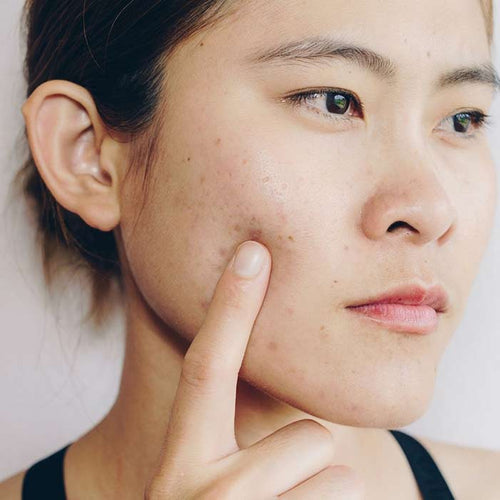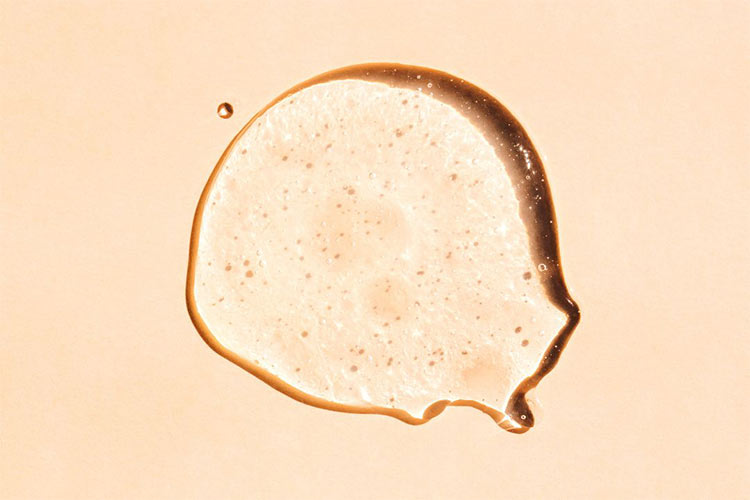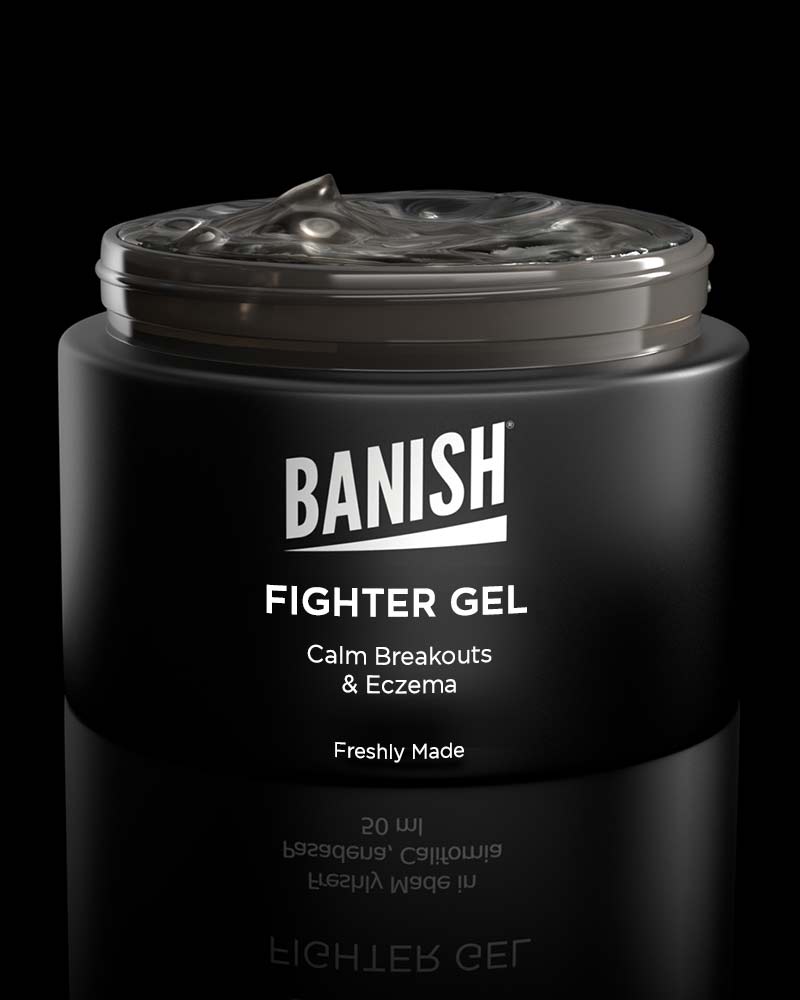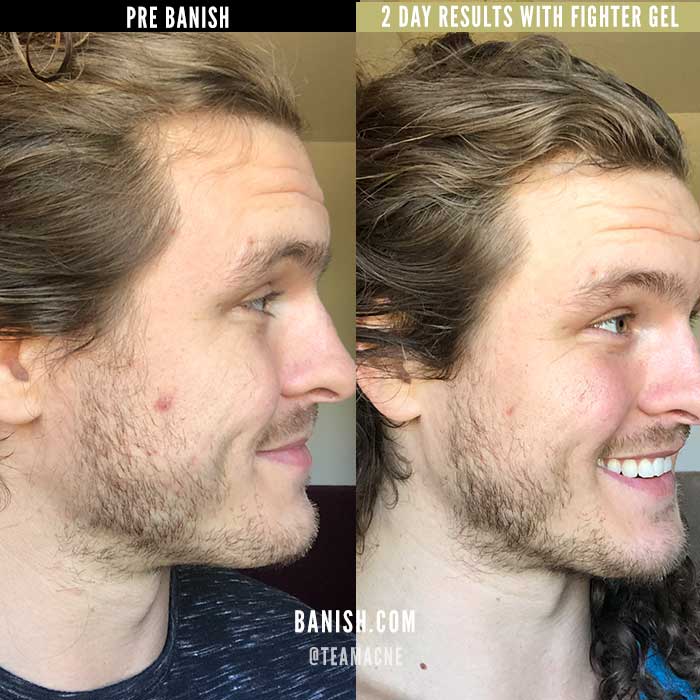If you have oily or acne prone skin, you are not alone. Oily skin can offer benefits like a natural glow and slower visible aging, but excess shine, clogged pores, and breakouts can feel frustrating. The good news is that with the right routine grounded in science and gentle, plant based care, oily skin can stay balanced and clear.
Below is a simple, skincare routine designed specifically for oily and acne prone skin.
1. Cleanse Twice a Day
Washing your face morning and evening is one of the most effective habits for oily skin. Research shows that cleansing twice daily may be more effective for improving acne compared to cleansing only once a day. (1)
Why it matters:
Oily skin produces more sebum, which mixes with sweat, pollution, and dead skin cells. This can create the perfect environment for clogged pores.
What to use:
Choose a foaming or gel based cleanser because they remove excess oil without feeling heavy. Avoid harsh cleansers that leave skin tight or stripped, since this can disrupt the moisture barrier and trigger more oil production.
Extra tip:
Change pillowcases and sheets frequently since fabric can collect oil, bacteria, and product residue that transfer onto skin.
Explore cleansers ideal for oily skin: Banish All Clear Mint Cleanser
2. Apply an Acne Treatment If Needed
If you are dealing with breakouts, incorporating a targeted treatment can help.
Retinol for oily skin:
Retinol is well studied for improving acne, reducing clogged pores, and normalizing skin cell turnover. (2) It may also help regulate sebum production with consistent use.
How to use:
Start 1 to 2 times per week at night and moisturize afterward. Always wear sunscreen during the day. If irritation occurs, reduce frequency or pair with soothing botanicals like centella asiatica or green tea.
Browse acne targeting treatments from Banish
3. Exfoliate with Glycolic Acid
Glycolic acid is an alpha hydroxy acid (AHA) that removes dead skin cells on the surface and can penetrate into pores to loosen excess oil and buildup. (3) This helps skin look less oily and may improve hyperpigmentation, acne breakouts, skin texture, and collagen stimulation.
How often:
Use glycolic acid 1 to 2 times per week to avoid irritation or over exfoliation.
Product recommendation:
A gentle, effective option is the Pumpkin Enzyme Masque, which uses natural pumpkin enzymes and glycolic acid to brighten, exfoliate, and clear congestion.
Pumpkin Enzyme Masque:
https://banish.com/products/pumpkin-enzyme-masque
4. Moisturize Even If Your Skin Is Oily
It might feel counterintuitive, but oily skin needs moisture. When skin becomes dehydrated, the moisture barrier weakens and can lead to more oil production and breakouts.
Choose lightweight formulas:
Look for moisturizers that are gel based, water based, oil free, or labeled non comedogenic.
Beneficial ingredients:
Niacinamide, green tea, and centella asiatica (also known as gotu kola) can help control oil, calm irritation, and support the skin barrier.
Product recommendation:
Banish Fighter Gel is a lightweight aloe based gel with natural extracts that help calm skin, reduce oiliness, and support repair.
Fighter Gel:
https://banish.com/products/fighter-gel
5. Finish with Sunscreen Every Morning
Sunscreen is essential for every skin type, including oily and acne prone skin. UV exposure may increase sebum production and worsen post acne dark spots. (4)
What to look for:
Lightweight textures with minimal oils, non pore clogging formulas, mineral options if you prefer oil absorbing ingredients, and finishes that dry matte or semi matte.
Final Thoughts
Oily skin is normal and manageable with the right routine. Using gentle cleansers, targeted treatments, chemical exfoliants, lightweight moisturizers, and daily sunscreen can help balance oil production while keeping skin clear and healthy.
For plant based, science backed skincare designed for sensitive and acne prone skin, explore the full Banish collection:
https://banish.com/collections/all
https://pubmed.ncbi.nlm.nih.gov/25190736/
https://pubmed.ncbi.nlm.nih.gov/29430739/
https://pubmed.ncbi.nlm.nih.gov/19706002/
https://pubmed.ncbi.nlm.nih.gov/25545383/

























Leave a comment
All comments are moderated before being published.
This site is protected by hCaptcha and the hCaptcha Privacy Policy and Terms of Service apply.